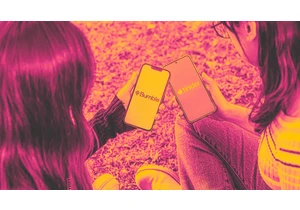Apple, which has built its brand on data privacy, settled a class action suit this week in which the plaintiffs claimed their iPhones’ Siri voice assistant listened in on their conversations for the purpose of targeting them with ads.
The iPhone-maker has (preliminarily) agreed to pay $95 million to settle the case after five years of legal jousting. The case alleged that users’ “communications were obtained by Apple and/or were shared with third parties without their consent as a result of an unintended Siri activation.” The class action suit involves three lead plaintiffs, one of whom is a minor. Plaintiffs’ lawyers say the class could include “tens of millions” of Apple customers who have bought Siri devices since 2014. Two of the lead plaintiffs claim that after talking extemporaneously about Air Jordan sneakers and Olive Garden restaurants they soon saw ads targeted to them for those products, Reuters reports. Another person said they saw ads for a surgical treatment after having a private discussion with their doctor.
Apple settled without admitting any wrongdoing. But settling leaves open the possibility that the company isn’t altogether innocent, and falls short of Apple’s usual staunch defense of its customers’ data privacy rights. It also lends credence to a widespread consumer hunch that our phones indeed do listen in on our conversations in search of utterances that might indicate an interest in some product.
That belief is so common that Mark Zuckerberg was repeatedly asked whether Facebook listened to users through their phones during a 2018 Congressional hearing. He denied it. No major tech company has crossed that line, which would be a colossal privacy violation. (Not that the idea hasn’t been floated: The marketing geniuses at Cox Media Group just last year claimed to advertisers that it could listen to customers through the embedded microphones in their smartphones, smart TVs, and other devices to gather data about those customers and serve them targeted ads, 404 Media reports.)
Contributing to the “eavesdropping iPhone” narrative is a misunderstanding of just how far the ad-tech industry has come in its ad targeting practices. A consumer may believe an oral comment triggered an ad on their phone when they actually exhibited possible product interest in some other way on some other device (say, by watching a related YouTube video on a laptop). Ad-tech firms are able to track a single user across devices and communications networks, and can infer a product interest based on our physical location (near a car dealership, for example). In fact, they can even infer product interest from our proximity to another user, by assuming we share the same product interests with people close to us. In short, things have gotten creepy.
Reuters cheekily points out that the $95 million settlement equates to Apple’s profits during about nine hours of operations, adding that Apple earned $93.74 billion in its latest fiscal year. (Google is defending a similar suit in federal court in San Jose, with the same law firms representing plaintiffs as in the Apple case.)
For Apple, which has spent years advancing its “privacy is a human right” story, settling the class action out of court will undoubtedly suggest to many that there’s at least a kernel of truth to the “eavesdropping iPhone” belief, and will feed consumer angst over the erosion of privacy in modern life. And it comes at a time when conspiracy theories are bigger than ever, and mistrust and resentment of big corporations is growing.
Autentifică-te pentru a adăuga comentarii
Alte posturi din acest grup

I don’t know about you, but practically every time my phone rings, my heart rate starts skyrocketing.
Who the hell could be calling me? What in the world do they want? And why, for the l

As the clock ticks closer to a U.S. ban on TikTok, small businesses are bracing for the loss of an app that has, in many cases, proven vital for their success.
Millions of small business

Greg Epstein is the Humanist chaplain at Harvard University and at MIT, where he advises students, faculty, and staff members on ethical and existential concerns from a humanist perspective. He ha

Apple gives every iCloud user 5GB of free storage space. This storage space can be used for any

If Spotify Wrapped left you underwhelmed this year, TikTok’s “Dating Wrapped” trend is here to sp

Dating apps are gearing up for their busiest day of the year: Dating Sunday.
This landmark day in the dating world always lands on the first Sunday of January. The idea is that sin

A federal appeals court sealed the fate of the Biden administration’s efforts to regulate internet providers on Thursday, st
